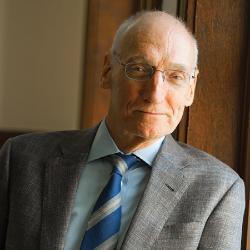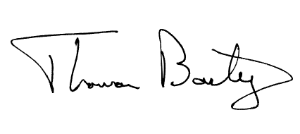Centering our Excellence: The Case for Our Place

Imagine you are an investor or philanthropist whose goal is to improve the lives of people and to build a better world. Any number of institutions are worthy of your support. But in these challenging times, you’re interested in doing more than delivering incremental change: You also want your investment to have far-reaching and lasting impact.
There are many good reasons for you to invest in Teachers College.
You would be drawn, of course, by our stellar 132-year track record of confronting the major challenges and inequities of each successive era.
You would be impressed by our many leading faculty — supported and augmented by our passionate and gifted students and dedicated, accomplished staff — who are shaping and launching new fields within the learning sciences, education policy and economics, community health, the treatment of brain-based disorders, psychological resilience, and so much more. Examples of their recent work include:
- New strategies to promote the “deeper noticing” that enables science students to apply and reflect on core scientific principles;
- Analysis of states’ rollout of the Every Student Succeeds Act (ESSA) that has spotlighted flawed federal enforcement and a potential new wave of misguided standardized testing;
- A groundbreaking study to determine whether poverty can directly inhibit brain development in very young children;
- Research that powerfully suggests that inadequate medical guidelines are depriving youth exposed to gun violence of desperately needed psychological and emotional supports;
- A study that achieved enormous success in using federal housing vouchers to steer low-income Seattle families to “high-opportunity” neighborhoods — an outcome strongly linked to greater lifetime earnings for young children;
- Creation of a new online tool to help school districts calculate the costs and benefits of purchasing new programs and services — and engage parents, teachers and other stakeholders in the decision-making process.
Of course, as a shrewd investor with broad perspective, you also understand that it takes more than exceptional innovations and breakthroughs by individual scholars to change the world. You’ve seen how the most effective organizations operate in the world of education, health and psychology. They convene the right people around the table. They test and refine their ideas in the real world. And they forge partnerships with practitioners on the front lines in order to take their approach to scale. In so doing, these efforts expand access to quality education, health care or community services, improve professional practice, and shape policy.
At Teachers College, we see our centers, institutes and labs as the best means for innovating, partnering, scaling up and making a major impact.
Because they span disciplines, these hubs are the sparkplugs for disrupting convention. They can bring together inventive thinkers who look at things differently and give us a vision that looks far beyond where we are today. Their work is the proverbial pebble cast in the water that creates ripples outward.
That’s not to say that all centers must look the same. Indeed, with so much richness at TC, our more successful hubs take many different forms — but they share one essential feature: they are problem re-definers and conceptualizers of long-term social change whose work is cumulative and enduring.
You can read more about six of TC’s dynamic and highly effective centers in our Special Report, where we present them in the form of “investor profiles,” aimed at investors who include students, faculty members, alumni, and potential funders and partner organizations. Still, I’ll share a few highlights here.
The Development of Children and Families
Over the past 30 years, TC’s National Center for Children & Families (NCCF) has helped drive growing understanding that the first few years of life are an enormous window of opportunity for maximizing children’s learning and life chances.
Most recently, "life course" work by NCCF co-director Jeanne Brooks-Gunn, one of the world’s leading developmental psychologists, has helped reveal how growing up in families in which parents are not married affects young children in ways that carry over into adolescence and adulthood. Meanwhile, the Center’s other co-director, policy expert Sharon Lynn Kagan, has spearheaded a massive study of early childhood education and care in six trend-setting nations, distilling features and approaches that make their systems so highly effective. This potent combination of bench science and policy research is demonstrably moving the needle in protecting our most precious asset: the children who represent our future.
Community Colleges and Developmental Education
Community colleges are the primary pathway to higher education for America’s minority, poor and immigrant students. TC’s Community College Research Center (CCRC), which I helped to found in 1996 and which is now led by Research Professor Thomas Brock, has helped to shift the focus of these institutions from merely making higher education accessible and affordable to low-income families to ensuring that students graduate with the credentials and tools to pursue successful careers.
Recently, CCRC has helped demonstrate that a key strategy in that effort isn’t working as hoped: developmental education, or the courses prescribed for community college students who arrive insufficiently prepared in the fundamentals of English and mathematics. These non-credit courses, which cost time and money, often derail students who have neither. However, there is good news to report: At a recent major conference convened by CCRC and its affiliate, the Center for the Analysis of Postsecondary Readiness, researchers reported that many states have dispensed with required developmental education, while institutions that do require it are using strategies championed by CCRC to improve these courses and better determine who should take them. As a result, the benefits of higher education will reach more people and increase equity and opportunity in our society.
Nutrition and Food
Teachers College created the field of nutrition education and our faculty have since written the field’s foundational nutrition textbooks, launched the eat local/think global movement, and taken on the commercial food industry. Above all, they have championed nutrition education for children that includes growing, preparing and regularly eating fresh produce.
Ensuring that kind of education has been a primary mission of TC’s Laurie M. Tisch Center for Food, Education & Policy, launched in 2012. In December, the Tisch Food Center released an evaluation of efforts by New York City — the nation’s largest school system — to convert its 1,700 public school cafeterias into facilities that can prepare fresh meals from scratch. The report called for greater investment in kitchen infrastructure and staff training and advancement, and better coordination of everyone involved in school food — but it also pronounced the end goal eminently achievable. For other districts, that verdict happily confirms the old New York City adage: If you can make it here, you can indeed make it anywhere.
The impact these centers are delivering has motivated us to explore what else we could be doing to maximize the investments of our stakeholders. We’ve been asking ourselves: With all the intellectual firepower here, what conversations and collaborations aren’t taking place? What synergies aren’t being realized? Have there been missed opportunities to institutionalize the excellence of our individual people and programs?
The answers my leadership team and I have been coming up with are helping us to position Teachers College as the go-to place for building a more equitable world in which education in all fields is central to enabling individuals, families and communities to flourish and contribute to the betterment of society.
To that end, we’ve identified a set of key priorities and action items for the coming year and beyond. Under the banner of “Excellence for All,” they include:
- Ensuring that our departments serve as hubs of innovation and collaboration. We will reduce the number of academic departments at TC in order to group programs together (for example, in teaching or psychology) in ways that maximize collaboration and consolidation.
- Improving our research infrastructure. TC conducts more than $60 million annually in funded research — but much of that is accounted for by a small group of centers, institutes and individual researchers. Led by Provost Stephanie Rowley, we’re providing faculty with grant-writing coaches and establishing a repository that gives new and experienced grant writers alike access to colleagues’ successful proposals.
- Strengthening student pathways. To attract an ever-broader pool of exceptional applicants — and to ensure that our admitted students enroll, thrive and achieve their research and career goals — we’re working to increase student financial support and to make financial aid more effective and transparent. Provost Rowley is leading a task force to help students apply for and win fellowships from the Spencer Foundation, the American Educational Research Association, the National Science Foundation, and other sources. We’re creating a new student hub in 528 West 121st St. and transforming our career services function into a comprehensive, full-service operation that connects students to our alumni and prospective employers.
- Establishing TC as a leader in digital innovation and teaching. A new center on the upper floors of TC’s Gottesman Libraries will chart the future in digital pedagogy and support the College’s many classes, labs and faculty projects that develop and use technology resources in teaching and learning.
- Redoubling our commitment to diversity, equity and inclusion. We also seek even greater diversity in appointments and promotions for faculty and staff and in student enrollment — and to the latter end, we are introducing a Teachers College Diversity Scholarship to help attract students from historically under-represented groups and low-income students.
How will we know when we’ve succeeded? One yardstick is what our alumni say about how we’ve prepared them for their careers. In October, for example, when Kate MacKenzie, a graduate of our Nutrition Education program, was named Director of the New York City Mayor’s Office of Food Policy — the city’s top nutrition post — she called herself part of “the continuing legacy of the comprehensive Teachers College approach to food, health and nutrition.”
That’s the kind of assessment we’d like all of our stakeholders to make about Teachers College. We may not be fully there yet, but as you’ll discover in the rest of this Annual Report, we’re building a smarter and more efficient TC that is already delivering a greater return on investment. We’re making teaching, research, and practice a more powerful catalyst for promoting human development. And — starting with our own people — we’re working to unleash each individual’s full creative, intellectual and economic potential.
In short, the Teachers College portfolio should appeal to anyone looking to invest in building smarter, more productive and more just societies. We have the mission. We have the people. We have the ideas. And by striving for excellence across our institution, we’re working to ensure that we achieve the greatest possible impact.
Won’t you join us?

Thomas Bailey
President